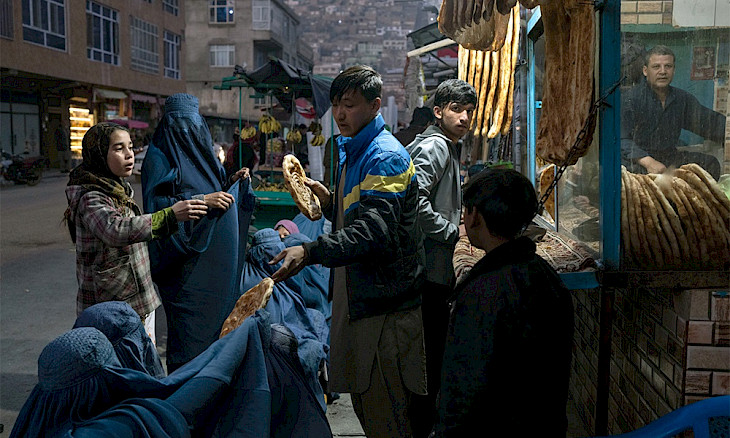The United Nations World Food Programme (WFP) has sounded the alarm over a drastic decline in global humanitarian funding, warning that millions of people worldwide — including Afghans — could face worsening hunger as food aid levels fall to their lowest point in years, Ariananews.af reports.
In a report released in Rome, the agency said its operations in Afghanistan are among the six most affected by a 40% drop in global funding, which fell from $9.8 billion in 2024 to $6.4 billion this year. The WFP cautioned that without urgent support, life-saving assistance for families facing “catastrophic” hunger (IPC Phase 5) is at risk of collapse.
Currently, less than 10% of Afghans in need are receiving food assistance, despite mounting unemployment, deepening poverty, and widespread malnutrition. Millions rely on WFP distributions as their primary food source — particularly during harsh winters and ongoing economic isolation.
“The global humanitarian system is under immense strain as partners withdraw from the front lines, leaving dangerous gaps,” the report stated. “Coverage has plummeted, and rations have been slashed.”
WFP Executive Director Cindy McCain described the situation as dire: “The world is facing hunger on an unprecedented scale, yet the resources to confront it are woefully insufficient.”
According to the Integrated Food Security Phase Classification (IPC), up to 13.7 million people could slide from “crisis” to “emergency” levels of food insecurity, with Afghanistan among the countries most at risk.
Aid agencies note that the crisis has been aggravated by cuts in international assistance, including major reductions in U.S. aid early this year under President Donald Trump’s administration — a move that disrupted relief operations in several regions still reliant on foreign support.
WFP officials in Kabul said the agency faces “impossible choices,” prioritizing the most vulnerable — women-headed households, children, and the elderly — while reducing aid to others also in need.
Afghanistan remains one of the world’s most severe humanitarian emergencies, with more than 15 million people suffering from acute food shortages. Economic collapse, drought, and limited job opportunities have fueled hunger across both rural and urban areas.
Earlier this year, the UN officially declared a famine in Gaza, and the WFP reported that the number of people facing starvation or near-starvation has doubled in two years, reaching 1.4 million across five countries.
McCain warned that rising hunger threatens not only lives but also regional stability, forcing mass displacement. “We risk losing decades of progress in the fight against hunger,” she said.
The WFP urged donor countries to renew and expand funding commitments to prevent a further deterioration of global food security — stressing that sustained humanitarian support is critical, especially in Afghanistan, as winter approaches.
CentralasianLIGHT.org
October 20, 2025

